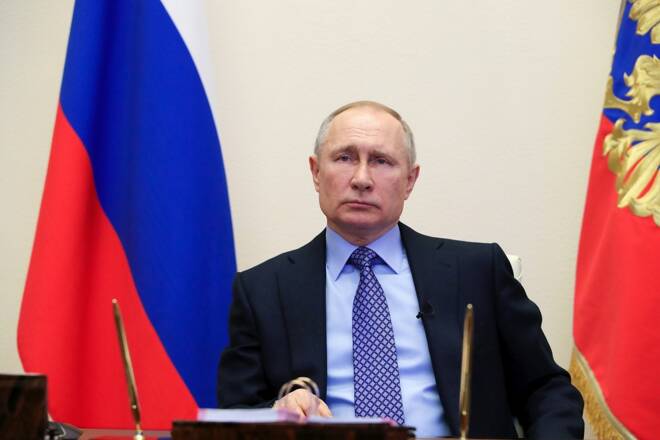Advertisement
Advertisement
Russia to Ease Crypto Asset Taxes as Sanctions Bite Deeper
By:
The Russian government is adjusting its digital asset tax rates in an effort to encourage more adoption as they feel the sanctions squeeze.
Key Insights:
- A proposed draft law will drop VAT for local crypto companies by 35%.
- Russia is trying to encourage more crypto adoption in the face of financial sanctions.
- Crypto markets have shed 46% since the war in Ukraine began.
Russia is increasingly turning to digital assets as Western-imposed sanctions, and financial restrictions continue to erode its ability to transact with other nations.
On June 28, Russian lawmakers approved draft legislation that would potentially exempt issuers of crypto assets from value-added tax (VAT). Currently, the tax rate for companies conducting digital asset transactions is 20%.
Under the new rate, this will be dropped to 13% for Russian exchanges on the first 5 million rubles (around $US94,000) annually. Foreign exchanges and crypto asset companies will be subject to 15% VAT, according to local media.
Russia Opening to Crypto
The Russian central bank, like most others around the world, has taken a harsh stance against cryptocurrencies. In February, financial regulators issued the first digital assets license for local platform Atomyze Russia, and one for leading lender Sberbank followed.
In addition to the tax cuts for issuers, the draft law approved by State Duma members also establishes tax rates on income earned from the sale of crypto assets. However, the legislation must still be reviewed by the upper house and signed by President Vladimir Putin to become law.
The law, if passed, will establish specifics regarding digital asset operations and what the government calls utilitarian digital rights (UTR), which it considers similar to securities.
The move comes as financial restrictions continue to hamper the country’s ability to transact globally in the wake of Vladimir Putin’s invasion of Ukraine. Most major Russian banks have been blocked from the international payments channel, SWIFT.
Anti-crypto U.S. politicians used the premise that Russia would pivot to crypto to evade sanctions in an effort to further crack down on them, but it simply hasn’t happened yet.
Russia’s financial woes are worsening as this week, it defaulted on its foreign debt for the first time since the Bolshevik revolution, also known as the October Revolution in 1917. Russia failed to pay interest on two bonds during a 30-day grace period that expired on June 26.
Crypto Winter Deepens
Since the war in Ukraine began in late February, crypto markets have plunged 46%, shedding more than $800 billion from total market capitalization to current levels.
Markets have taken another turn south today, with a 1.4% decline on the day to $954 billion during the Wednesday morning Asian trading session.
Bitcoin (BTC) remains deep in bear territory, trading below several historical price models at $20,371. Ethereum (ETH), meanwhile, has lost even more, dropping 2.4% on the day in a fall to $1,151.
Until macroeconomic conditions, primarily created by the pandemic and war, improve, there is unlikely to be any thawing of the crypto winter ice.
About the Author
Martin Youngauthor
Martin has been covering the latest developments in the blockchain and digital asset industry since 2017 when he made his first investment. He has previous trading experience and has worked extensively in IT over the past 2 decades.
Advertisement
